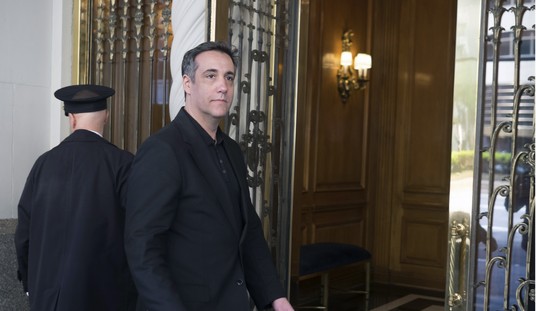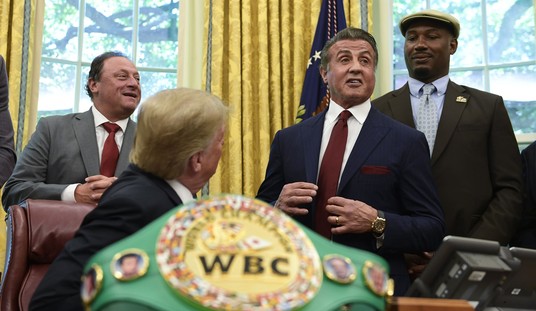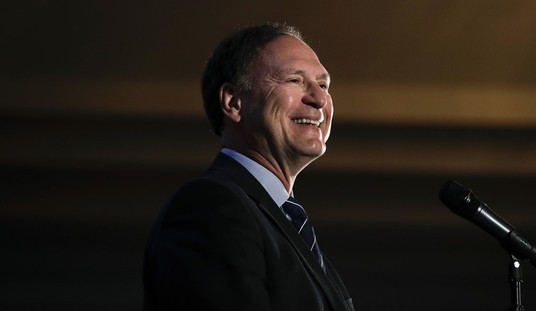
Displaced civilians from Ramadi wait to receive humanitarian aid from the United Nations in a camp in the town of Amiriyat al-Fallujah, west of Baghdad, Iraq, Friday, May 22, 2015. The United Nations World Food Program said it is rushing food assistance into Anbar to help tens of thousands of residents who have fled Ramadi after it was taken by Islamic State militant group. (AP Photo/Hadi Mizban)
Everyone — and no one.
Read:
Iraqis lacked “the will to fight” against encroaching Islamic militants, with press secretary Josh Earnest calling it a “problem we’ve seen in the past.”
The Pentagon took the criticism a step further, saying the Iraqi troops “chose to withdraw” from Ramadi despite “a substantial” advantage in combat power.
“In this case of Ramadi, there was a problem of both low morale amongst the troops and there was a problem with the command structure,” Pentagon spokesman Army Col. Steve Warren said. “The command and control structure does not appear to have been fully up to the task.”Iraqi officials have bristled at Carter’s criticism, with Hakim al-Zamili, the head of the parliamentary defense and security committee, calling it “unrealistic and baseless.”
President Obama’s hands-off approach to Iraq pretty much guaranteed that the country’s old sectarian problems would fester until they threatened to split the country — and they did split the government and the military. Obama’s scuttling of the Status of Forces talks completely guaranteed that should the worst come to pass, we would have very little ability to do much about it. Would the Iraqi government have held together better with a U.S. presence still in place? Perhaps. Would the Iraqi Army have performed better with the help of two or three full U.S. Army brigade combat teams? Almost certainly.
So while there’s plenty of finger pointing to go around, the first and biggest finger should be pointed directly at Obama and his callous disregard for the fate of 25 million Iraqis once liberated by President Bush and 40-plus nations of the “Coalition of the Willing.” Bush’s big error wasn’t the 2003 invasion, but his insistence on keeping Iraq ‘s false borders. Obama didn’t care enough to do even that much however, preferring to call Iraq a “dumb war” and leaving that non-country to its own meager devices.
This was all done under the guise of being “the President who ends wars.” Here’s what the NYT’s Mark Landler reported, with something less than prescience, back in 2011:
Although Mr. Obama’s backers note that foreign policy is likely to play a limited role in 2012, they clearly hope he can reap a political benefit from being a different kind of wartime president.
Certainly, polls suggest that leaving Iraq is a no-lose proposition. In a CBS News poll last month, 77 percent of those surveyed said they approved of pulling out the troops by the end of 2011, while only 17 percent disapproved. Sixty-three percent of Republicans supported withdrawing by year’s end. And 67 percent of people said they did not think the war was worth its cost, in money or lost lives.
“A lot of people thought and said he would not be able to end the war in Iraq,” said Bill Burton, a former White House aide who is a senior strategist for Priorities USA Action, a political action committee that supports the Obama campaign. “This demonstrates that the president can be a strong leader, even in difficult circumstances, which is broader than just the Iraq war.”
Mr. Burton said he planned to send out a mass e-mail this weekend celebrating Mr. Obama’s achievement, and contrasting it to the positions taken by two leading Republican candidates, Mitt Romney and Newt Gingrich.
Now I have no idea what President Romney would have done about Syria, although it seems safe to guess that he wouldn’t have fiddled with red lines while Ghouta burned. And it isn’t even a guess, based on Romney’s campaign statements, that his team would have negotiated a proper Status of Forces agreement which would have given Iraq the breathing space it needed to work on its domestic troubles, and given us the ability to prevent Iran and ISIS from bifurcating the country from the east and west.
Obama used to talk about “this mess” he inherited in the Middle East. But like my nine-year-old son when told to clean his room, Obama’s fix was to close the door and hope no one would notice.
The headline on that Landler story described Obama as a “wartime leader.”
If only.









Join the conversation as a VIP Member